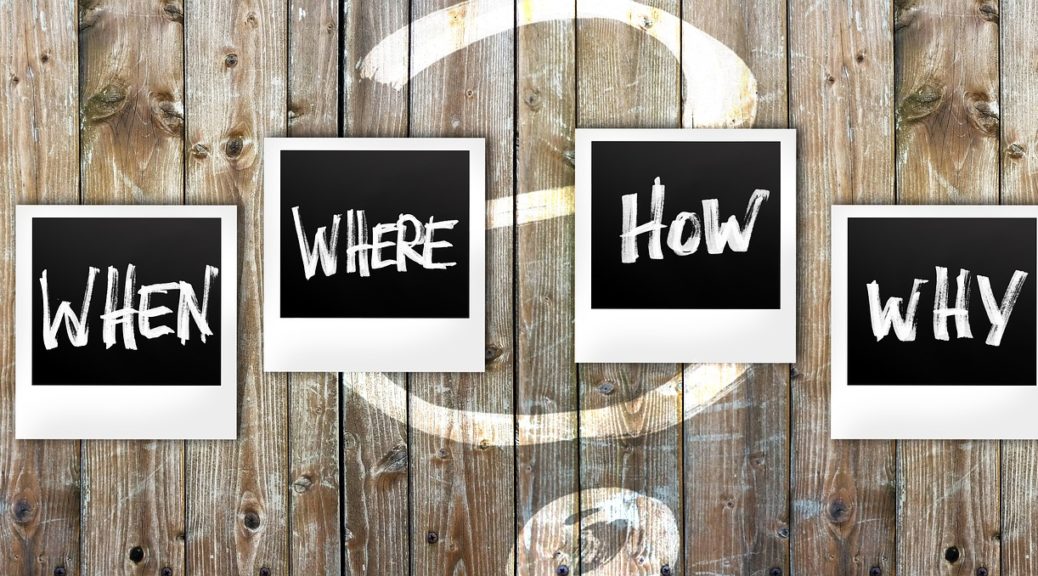
How to Defend Your Beliefs Rationally
 I’ve run into several interesting videos lately by the atheists who are working what is called Street Epistemology (just search for it on YouTube). It’s a method that Socrates (the Greek philosopher) used to have a discussion with his students to logically challenge their beliefs. The atheists who use this interesting method are using it to foster doubts in various religions. To be quite frank, most of the people they talk to tend to be Christian, and the Christians tend to have no fucking clue why they believe what they believe. Or how they came about their beliefs. I’ll admit that some of the video is painful to watch to the point where I would rather have my dentist drill my teeth than watch the Christian evangelists preach. Still, you have to give points for the stones the atheist has asking how people arrived at their belief systems.
I’ve run into several interesting videos lately by the atheists who are working what is called Street Epistemology (just search for it on YouTube). It’s a method that Socrates (the Greek philosopher) used to have a discussion with his students to logically challenge their beliefs. The atheists who use this interesting method are using it to foster doubts in various religions. To be quite frank, most of the people they talk to tend to be Christian, and the Christians tend to have no fucking clue why they believe what they believe. Or how they came about their beliefs. I’ll admit that some of the video is painful to watch to the point where I would rather have my dentist drill my teeth than watch the Christian evangelists preach. Still, you have to give points for the stones the atheist has asking how people arrived at their belief systems.How I Feel About This
I understand why the atheists do this. Street Epistemology uses logic to foster doubt in irrational beliefs people hold dear. They allow the interviewee to make their case and then gently tear it apart when it is shown to be illogical. It is a friendly discussion, but its intent is to foster doubt. Far be it for me to say avoid them. They actually give us a good reason to examine our beliefs and why we believe what we do. As Heathens, we often pride ourselves with our “homework” and the antiquity of our beliefs. Som e of us–yours truly included–have had UPG and contact with deities. Talking with atheists do not necessarily make us atheists. It simply helps us define what we believe and why. If you don’t know why you believe something, other than faith or a gut feeling, you should probably define why you believe what you believe. And quite honestly, if you decide you don’t believe, that’s okay, but for reasons other than you think.
e of us–yours truly included–have had UPG and contact with deities. Talking with atheists do not necessarily make us atheists. It simply helps us define what we believe and why. If you don’t know why you believe something, other than faith or a gut feeling, you should probably define why you believe what you believe. And quite honestly, if you decide you don’t believe, that’s okay, but for reasons other than you think.
The Heathen Gods Don’t Need Us
Unlike the Judeo-Christian religions, our gods really don’t give a damn if we follow them or not. (Okay, maybe they care a bit, but not the way the Christian god purportedly does.) I’ve been told several times now by Tyr and Skadi that it really doesn’t matter what I believe, if it is my destiny to do something, I will do it. (You gotta love the Wyrd, there.) Science may agree with this assessment of free will. In a block universe, everything has already happened. We are just moving forward in time because that’s how we perceive things.
The Heathen gods really don’t need us to worship them. They’ve existed quite fine without us for some time, but since we inhabit a world they deal in, they do deal with us, at least in their elemental nature. They like dealing with us because they’ve “created” us or at least put the entire mechanism of evolution into creating us. At least, that’s how I understand them. Having doubt in your belief system is okay because it fosters further study and research. And in a way, talking with someone using Street Epistemology is probably a good thing. It focuses our minds on what we believe and why. If you actually get to talk to a person who is questioning our beliefs, use it as a learning experience and not a way to get into a fight. It’s okay to say, “I don’t know,” to someone who asks pointed questions.
Asking Questions and Getting Answers
So, I looked at Street Epistemology and considered the questions asked. Why do I believe in what I do? In many cases, the religious types responded that they believed that their religion is the right religion because 1. their parents taught them their faith, 2. they believe the Bible/Koran is 100 percent infallible, 3. their god purportedly saved them in an accident or some other dire situation, or 4. they have “faith” in their god.
I thought about the question of why I believe what I do, and my answer was “none of the above” to the answers the peop le whom they talked to gave. My parents taught me Roman Catholicism, and I saw inconsistencies in the Bible from the start. I certainly don’t believe that the stories our people wrote down (including those in the Eddas) are completely accurate. No god ever saved me from an accident, as far as I know — those accidents I’ve been in, I got my own butt out of them, or someone else helped. If an all-powerful god really wanted to help me, I wouldn’t have been in the accident in the first place. As for faith, I have very little of it when it comes to believing in something I can’t see. That’s why my belief in the Heathen gods is rather odd. My answers are a bit more flexible, which would probably drive those performing Street Epistemology batty.
le whom they talked to gave. My parents taught me Roman Catholicism, and I saw inconsistencies in the Bible from the start. I certainly don’t believe that the stories our people wrote down (including those in the Eddas) are completely accurate. No god ever saved me from an accident, as far as I know — those accidents I’ve been in, I got my own butt out of them, or someone else helped. If an all-powerful god really wanted to help me, I wouldn’t have been in the accident in the first place. As for faith, I have very little of it when it comes to believing in something I can’t see. That’s why my belief in the Heathen gods is rather odd. My answers are a bit more flexible, which would probably drive those performing Street Epistemology batty.
Challenge Your Belief in the Gods
If I were approached by a Street Epistemologist about my Heathen faith, the question of how much I believe in my faith would probably be around 70 percent. That leaves a fair amount open for questions. Why? Because the moment you go into lock-step dogma, the more someone is manipulating you rather than you thinking for yourself. I know, it’s a radical idea for a religion and a religious person, but there you go. If you think you’re always right and your religion has all the answers, you’ve lost your ability to think critically. And that, my friends, is the difference between wolves and sheep. A wolf may follow a pack, but in the end, the wolf still uses its brain to make decisions. Sheep, on the other hand, follow the herd. Which one do you think is more likely to be slaughtered for dinner at the end?
The next question would probably be how I came to my belief. My guess is that my answer would send the interviewer packing, since it sounds fucking crazy. I mean, how do you explain that you were contacted by not one, but two, gods? Yeah, yeah, there are enough of us who have gotten a call, but seriously? Assuming the interviewer wasn’t fleeing for his life, he would ask how I knew it wasn’t just delusional. I’d say, “Bro, why do you think I’m at the 70 percent mark?”
As I’ve said before, you should challenge your belief in our gods and come up with logical reasons why you believe. Otherwise, you’re likely to end up like the people you see in those videos who just state that it’s faith and nothing else. While that may be good enough for you, it isn’t logical or well-defined. And makes you look like an idiot.
Nothing is 100 Percent Certain
As Heathens, we know that not everything is 100 percent certain. We know that there is possibly more to reality than what we can currently measure, and science backs us up when it comes to other dimensions. We know different dimensions might be the mechanism our gods use, along with basic quantum physics, but we are just guessing. For all we know, there could be nothing more, something more, or something we haven’t postulated yet. It’s okay to say “I don’t know” and accept that if we were presented with facts which contradict our beliefs in the gods, we would have to go along with them. Or we could consider another explanation as to why we still believe in the gods and why the information is not a contradiction.
I’m reminded of an old Enterprise episode where this race of people sent their bodies into another part of reality. They believed that the bodies would return to life and live happily in their newfound paradise. Only, they didn’t. They sat on a moon and rotted. The news was so horrific to the inhabitants that they could not accept the truth and disavowed all ideas that something could be different. In the end, the Enterprise crew did pick up energy readings that circled the moon. The implication was that maybe these people did indeed “live on” in the form of energy.
Our Beliefs May Change
If you don’t want to be a Luddite, you’ve got to accept that your belief system may change. Look at our ancestors’ beliefs. We know that the Earth is really not a Frost Giant’s body. We know that the Earth is not the center of the Universe. We know that our Earth is very old, and the Universe is older still. Our ancestors did not know this.
Those who insist that we not only reconstruct the ceremonies and beliefs, but stay mired in them are idiots. Heathenism must grow to suit our knowledge and modern sensibilities. Nowadays people can live to more than 100, with an average US life expectancy of a little over 78 years. Consider our ancestors in Viking times. They were lucky to make it to 50 years old (which was considered advanced old age), with a third dying in childhood. It would be accurate to say we’ve doubled the life expectancy. Thus, our experiences are vastly different than our ancestors. It’s cool to study them and learn the lessons they learn, but we must fit our beliefs into our modern times. No, I have no desire to return to an age where I’d already be dead, where disease ran rampant and I have none of the conveniences of modern day. Hel, my electric stove gave up the ghost the other day and while I made do, the next day I had to get a new one. I do NOT want to spend my time cooking on a hearth.
Anyway, I hope you’ve found some of these ideas enlightening. Let me know what you think.

